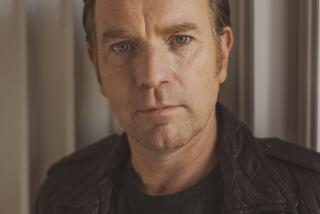U.S. Ambassador Reflects on 15 Months in Russia : Diplomacy: On eve of his departure, Robert S. Strauss bemoans failure to influence Parliament, calls Yeltsin a great man.
- Share via
MOSCOW — It was after hours, and Robert S. Strauss, the Texas millionaire who ceases being U.S. ambassador to Moscow today, sipped his 80-proof vodka on the rocks and reviewed the record of his 15 months inside the whirlwind of Russian politics.
“I don’t think I had any influence on (the Russian) Parliament,” Strauss mused at one point, explaining that American businesses still must operate here without the explicit laws on taxation and real and intellectual property they want. “I’ve damn sure tried, but failed.”
Winning such influence is what Strauss, 74, has done best all his life. And while in Moscow, the American mega-lobbyist has had success not only in working with lawmakers back in the city he came from--Washington--but also in establishing a relationship of trust with Russian President Boris N. Yeltsin.
As he met with the American press corps for a farewell interview at his official residence, Spaso House, Strauss once again generously praised Yeltsin and his agenda for transforming this country into what he called a prosperous, democratic land.
“It’s only a few months old--the greatest revolution that the world has ever seen,” Strauss said from a white armchair as he relaxed with his drink. “And it is led by a man who I think will go down as one of the three or four greatest men of this century.”
Yeltsin is now running into fierce opposition from nationalists, former Communists, industrial managers and other critics disgusted over his reforms’ failure to give most of the Russian people a more prosperous life. But Strauss is convinced he will prevail. “I’ve got the greatest respect for President Yeltsin’s political instincts--he’s the best I’ve seen,” Strauss said.
Strauss, a former chairman of the Democratic National Committee, leaves Moscow with the gratitude of leaders here for having been a vocal advocate of massive U.S. assistance and for encouraging American business people, Horace Greeley-style, to “go east.”
Deputy Foreign Minister Georgy A. Mamedov last week praised him as a “unique man” who, as a lifelong Democrat serving a Republican President, was the “living embodiment” of the consensus in America to treat Russia like a friend and ultimately an ally.
But outside government circles, Strauss’ effectiveness is disputed by some. In the summer of 1991, he told the Senate Foreign Relations Committee at his confirmation hearing that it would be a “major and tragic mistake” if the United States was to put all its trust in one or two individuals in the Kremlin. Ironically, some Russian critics say that is precisely what Strauss ended up doing by siding so decidedly with Yeltsin and Acting Prime Minister Yegor T. Gaidar.
“He is a businessman, a brilliant lawyer, a dazzling negotiator. But he is not an ambassador,” contended Lev L. Lyubimov, head of the U.S.A. Department at Moscow’s Institute of World Economics and International Relations.
“An ambassador should have in-depth knowledge of the country. He must know all the strata of its society,” Lyubimov said.
The fact that Strauss developed a good working relationship with Yeltsin doesn’t mean much, he contended. “A U.S. ambassador by definition has easy access to anything, period. He is not the ambassador of Guadeloupe or Uganda, you know,” Lyubimov said.
When Strauss took up the Moscow assignment at President Bush’s request, it was almost literally on the barricades hastily thrown up to defend this country’s fragile democracy against the August, 1991, hard-line Communist coup. Strauss’ sense for where true power lay in a fast-changing situation proved as keen on the banks of the Moscow as it was on the Potomac. He saw that the future rested not with Mikhail S. Gorbachev’s Soviet Union but with Yeltsin’s Russia.
The Russian leadership was grateful to Strauss for turning himself into an agent of influence. When Congress dropped plans last fall to infuse $1 billion into the tottering Soviet Union, Strauss fumed publicly that it was an “outrage.” Many times this year, he good-naturedly grumbled within earshot of reporters that he had been up at 4 a.m. telephoning Capitol Hill to line up congressional support for aid programs to Russia.
The Russians knew that with Strauss in Spaso House, they had a direct pipeline to his fellow Texan, George Bush. Ironically, with President-elect Bill Clinton about to become the first Democrat in the White House in 12 years, Strauss, the consummate Democratic powerbroker, doubts he will have much influence.
Strauss’ successor has not been named; the post will probably remain vacant until Clinton takes office.
More to Read
Sign up for Essential California
The most important California stories and recommendations in your inbox every morning.
You may occasionally receive promotional content from the Los Angeles Times.










